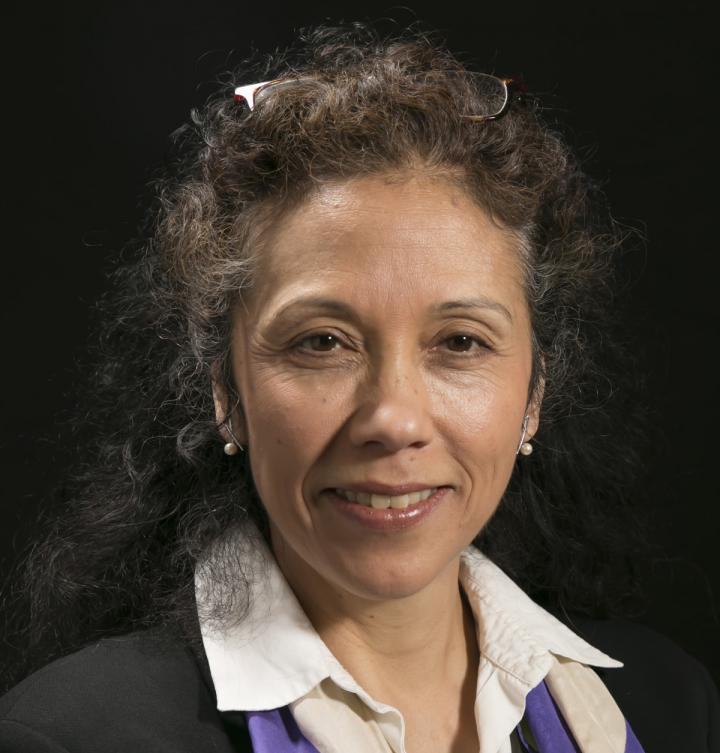Stroke researchers strive to close the implementation gap for spatial neglect care

Credit: Kessler Foundation
East Hanover, NJ. May 14, 2019. Spatial neglect remains a hidden disability despite the availability of effective tools for the diagnosis and treatment for this common complication of stroke. Addressing this implementation gap is critical to reducing disability, improving outcomes and controlling costs of stroke care, according to an article in Current Neurology and Neuroscience Reports, “Update on the Clinical Approach to Spatial Neglect” (DOI:10.1007/s11910-019-0940-0) published online on April 4, 2019. The authors are A.M. Barrett, MD, of the Center for Stroke Rehabilitation Research at Kessler Foundation, and K.E. Houston, OD, MSc, of Harvard Medical School and Spaulding Rehabilitation Hospital.
The article offers review and recommendations on spatial neglect, a common cause of functional disability after stroke. More than half of survivors of stroke are affected, and 30 percent of individuals with traumatic brain injury.
Spatial neglect has implications for deficits in visual/perceptual and motor function, as well as cognitive function. Affected individuals are at risk for prolonged hospitalization, falls, poor motor recovery, and discharge to nursing care.
The authors recommend that best practices in stroke rehabilitation include spatial neglect care, which can improve stroke outcomes, including motor recovery. They state that facilities incorporating assessment and treatment options in their stroke programs will find these processes bring them closer to their goals of quality improvement, lower costs of care, and improve quality of life for stroke survivors.
Drs. Barrett and Houston suggest in this article that there is sufficient evidence to support implementation of a care pathway for spatial neglect care. This may raise the standard of care, by raising awareness of the importance of integrating spatial neglect assessment in stroke rehabilitation. Available guidelines (American Heart Association, Veterans Administration, National Institute for Care and Health Excellence) recommend routine assessment for spatial neglect but do not specify diagnostic tools. Currently, an expanding network of U.S. rehabilitation facilities called Practice-RRuN, based at Kessler Foundation, implements an assessment tool based on the Catherine Bergego Scale. This assessment tool is part of the standard of care in the 14-member network.
The authors cite prism adaptation treatment as a highly feasible available treatment option. This method has been shown to improve spatial neglect symptoms, as well as performance of daily activities such as self-care, walking, wheelchair navigation, reading, and writing. “We anticipate that prism treatment will be feasible for therapists to administer,” said Dr. Barrett, “and that their time and effort will have a positive impact on the costs of care and the health and safety of stroke survivors.
To achieve optimal outcomes after stroke rehabilitation, spatial neglect research needs to be conducted in larger and more diverse study populations. Further research is needed to explore the neurobiology of spatial neglect, including brain interactions between spatial and motor systems. Incorporating neuroimaging techniques may yield biomarkers that will help identify candidates for clinical trials and treatment protocols, and may provide a way to measure the clinical course of spatial neglect and the effects of interventions.
###
May is Stroke Awareness Month
About the Center for Stroke Rehabilitation Research at Kessler Foundation:
Research studies span all domains of post-stroke dysfunction, including cognitive deficits and mobility impairment. Under the direction of A.M. Barrett, MD, stroke scientists also mentor students, resident physicians, and post-doctoral trainees in translational neuroscience of rehabilitation. Cognitive research emphasizes hidden disabilities after stroke, including disabilities of functional vision (spatial bias and spatial neglect), and reading deficits. Related research addresses the risk factors for delirium and medication compliance. Mobility research, in partnership with the Center for Mobility and Rehabilitation Engineering Research, centers on the application of new technologies for restoring upper and lower limb function. Stroke research receives funding from the National Institute on Disability Independent Living and Rehabilitation Research, Department of Defense; the National Institutes of Health/NICHD/NCMRR; New Jersey Commission on Brain Injury Research, Kessler Foundation; the Healthcare Foundation of New Jersey; the Mabel Flory Trust; the Serraino Foundation, and the Wallerstein Foundation for Geriatric Improvement. Scientists have faculty appointments at Rutgers New Jersey Medical School.
About Kessler Foundation:
Kessler Foundation, a major nonprofit organization in the field of disability, is a global leader in rehabilitation research that seeks to improve cognition, mobility, and long-term outcomes–including employment — for people with neurological disabilities caused by diseases and injuries of the brain and spinal cord. Kessler Foundation leads the nation in funding innovative programs that expand employment opportunities for people with disabilities.
For more information on Kessler Foundation’s research, visit KesslerFoundation.org.
Facebook |http://www.
Twitter | http://twitter.
Instagram | https:/
YouTube | http://www.
iTunes & SoundCloud | http://www.
Media Contact
Carolann Murphy
[email protected]
Related Journal Article
http://dx.




